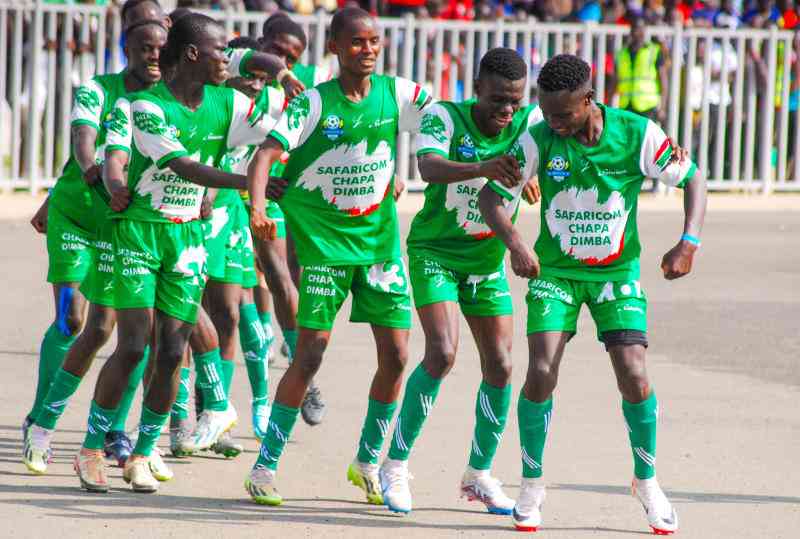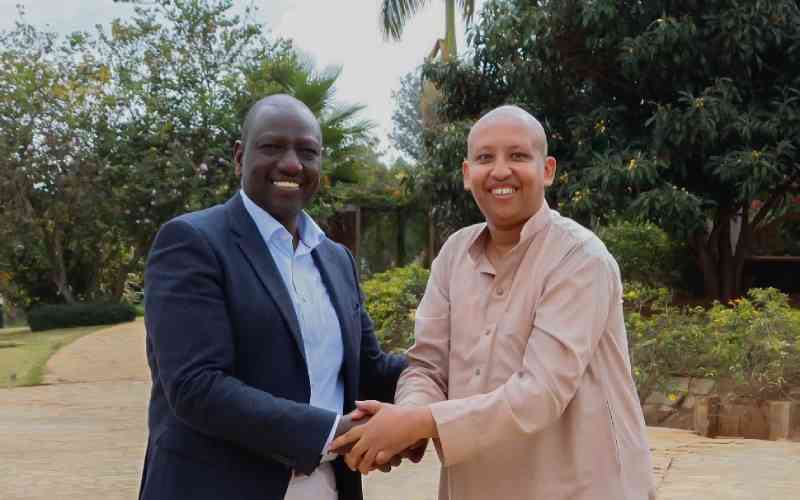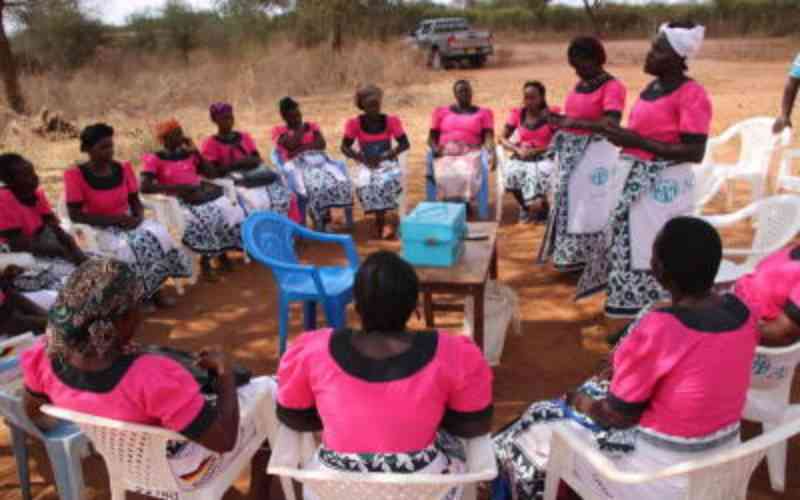I was born in Seme Kombewa, Kisumu County 35 years ago. I was crippled by a Polio attack when I was six years, since I did not get early medical interventions.
After trying to treat me with herbal medicine to no avail, my mother took me to my uncle, a doctor who treated me. Though I became well, I was still limping. I joined Nyang’oma School for The Disabled in Pondo before I transferred to a school near our home.
I dropped out of school at class eight because my mother could not afford to educate me after our father, who was the sole breadwinner, passed on.
I resorted to staying at home and assist my mother in making sisal ropes for sale in order to place food on the table.
My elder brother, who was a watchman in Nairobi, requested my mother to allow me to join his family. His wife had a newborn baby and he wanted me to help her in house chores.
He lived in Korogocho slums and making ends meet in the slum was challenging. Life was unbearable and I moved out of their house to the streets. I slept in makeshift structures made of polythene papers. I became a beggar and used the proceeds to venture into boiled maize business. I would walk for about 40 kilometres by foot to buy green maize and carry them to my business premise.
One day, I fell into a sewer line while carrying the green maize and Action Aid officials who were passing by felt sorry for me. They stopped their car, pulled me out of the ditch and asked if I was willing to stay in a children’s home. I answered in the affirmative because I wanted a place to lay my head on and get food. I was taken to a children’s home in the city.
I became pregnant while at the home and I decided to go back to the streets. With my baby tucked on my back, I begged on the streets near Jogoo House and slept in the parking segment at night. I used the proceeds to purchase sweets and hawk them in the streets.
I endured cold nights with my baby; sometimes we were rained on. There is this lady who would come to the city regularly and parked her car on a corner in the parking space where I always spent my nights. She was an early riser and she was fascinated by my hard work. I later learned that her name was Christine Demba and she was the senior chief of Mwiki.
She always encouraged me to continue working hard and also brought me food as well as cloths for my baby.
One morning,together with her friend, Carolyne Awino, they gave me Sh10,000 and told me to start a business. I bought handkerchiefs, towels and pens and sold them in the streets. I made a killing from the handkerchiefs. That was the year 2005 when renowned American televangelist TD Jakes visited Kenya and those attending his two day crusade at Uhuru Park were asked to have white handkerchiefs when attending the service.
Meanwhile, Christine came across a piece of land on sale in Saika, Nairobi and she encouraged me to acquire it. The cost of the plot was Sh150,000 and she paid half the amount for me and asked me to pay the remaining amount in installments.
She went ahead to set up for me a single-roomed house without my knowledge and only told me about it when it was complete. I moved in after living in the streets for ten years.
I however, did not abandon my hawking business since I always getting something out of it and today I am chairperson of the disabled hawkers in Muthurwa market where I sell. I am also a member of the Nairobi sitting volleyball team.
I joined various women groups and groups for people with disabilities where I was able to access loans and I now have a permanent home.
Stay informed. Subscribe to our newsletter
God brought me from nothing to something and I thank the Good Samaritan for her generosity.
There are people in the streets who can do well when given the opportunity.
I encourage people with disabilities to give their best in their daily activities because God will recognise their efforts.
 The Standard Group Plc is a
multi-media organization with investments in media platforms spanning newspaper
print operations, television, radio broadcasting, digital and online services. The
Standard Group is recognized as a leading multi-media house in Kenya with a key
influence in matters of national and international interest.
The Standard Group Plc is a
multi-media organization with investments in media platforms spanning newspaper
print operations, television, radio broadcasting, digital and online services. The
Standard Group is recognized as a leading multi-media house in Kenya with a key
influence in matters of national and international interest.
 The Standard Group Plc is a
multi-media organization with investments in media platforms spanning newspaper
print operations, television, radio broadcasting, digital and online services. The
Standard Group is recognized as a leading multi-media house in Kenya with a key
influence in matters of national and international interest.
The Standard Group Plc is a
multi-media organization with investments in media platforms spanning newspaper
print operations, television, radio broadcasting, digital and online services. The
Standard Group is recognized as a leading multi-media house in Kenya with a key
influence in matters of national and international interest.










